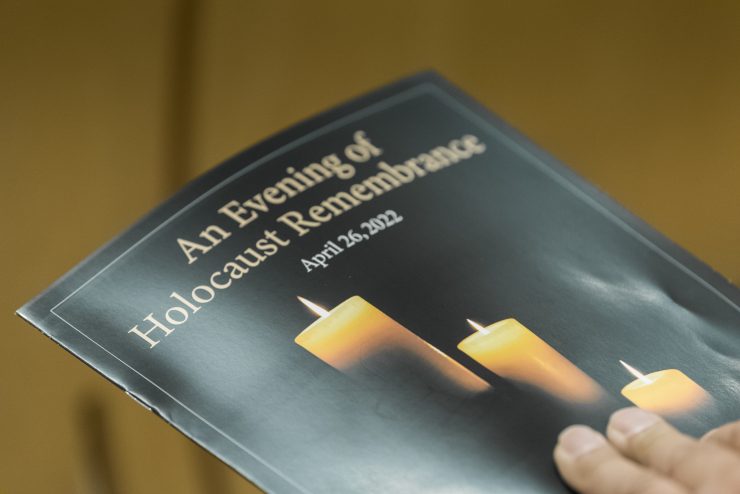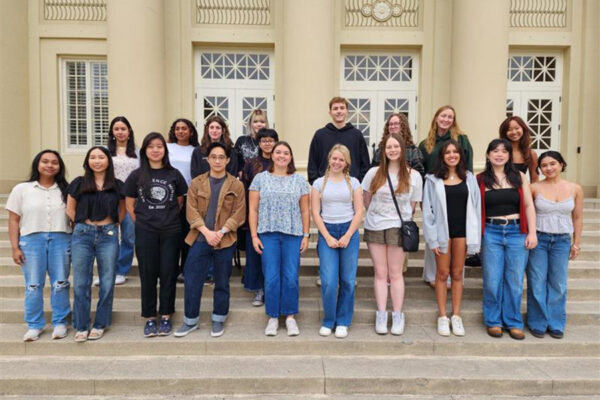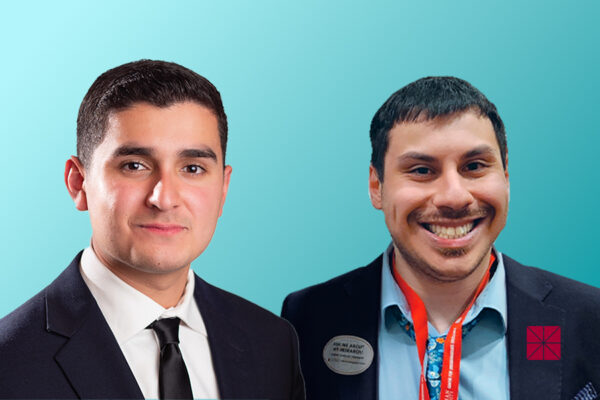On April 26, Chapman’s Rodger’s Center for Holocaust Education presented its 23rd Annual Evening of Holocaust Remembrance. Nearly 200 guests gathered virtually and in-person at the Wallace All Faiths Chapel to honor survivors, join in musical tribute and hear from distinguished guests on topics related to Holocaust study and the imperative to speak out against barbarism occurring today.
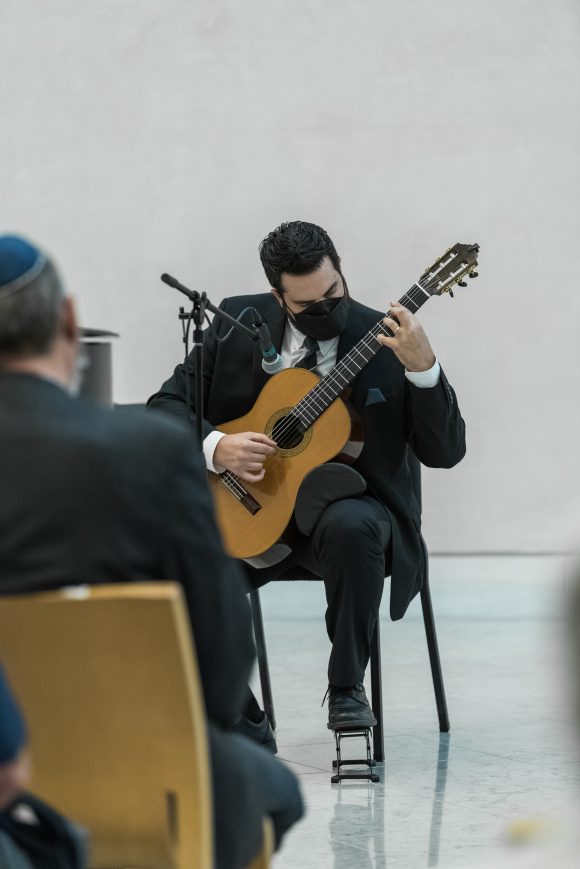
Daniel de Arakal ’10, Ph.D., assistant professor and director of guitar studies at Hall-Musco Conservatory of Music in Chapman’s College of Performing Arts, performed a contemplative arrangement of “Undzer Shtetl Brent (Our Town is Burning),” a Yiddish poem-song written by Mordechai Gebirtig in response to the Przytyk Pogrom of 1936. Rabbi Corie Yutkin, director of Jewish life and chaplain at Fish Interfaith Center welcomed the audience: “Answer our prayers and bring us to a world not of hatred, but of peace,” she invoked.
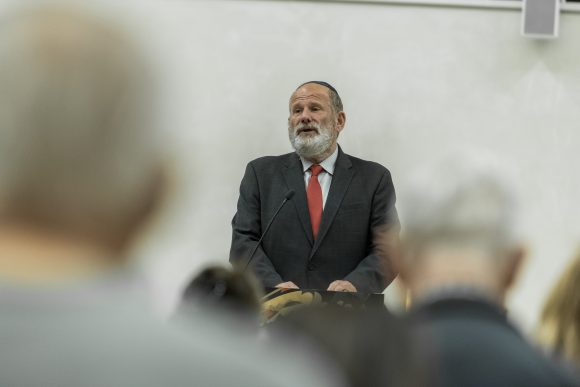
Cantor Chayim Frenkel of Kehillat Israel Reconstructionist Synagogue of Pacific Palisades performed several music tributes in his rich, warm tenor voice, including the 23rd Psalm and “Ani Ma’amin (I Believe),” a song which takes its Hebrew words from Maimonides’ Thirteen Articles of Faith. It is a declaration of faith and certainty that redemption will come in the form of the Messiah, even though it may be delayed. At the program’s conclusion, the audience joined Cantor Frenkel in song with an uplifting rendition of “Oseh Shalom,” the Jewish prayer for peace.
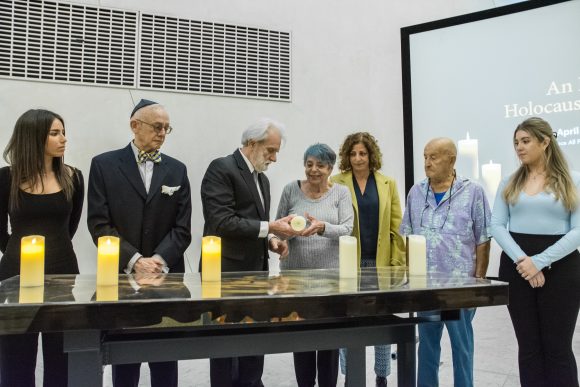
Orange County Holocaust survivors along with member of the second, third and fourth generations lit commemorative candles. Anna Berg ’22, a fourth-generation descendant; Michael Bazyler, professor of law in Chapman’s Fowler School of Law and the 1939 Society Scholar in Holocaust and Human Right Studies; David Crowe, Chapman Presidential Fellow and Holocaust scholar; Brynn Tiano ’23, a third-generation descendant; and survivors from Ukraine and Poland joined in unity and quiet contemplation.
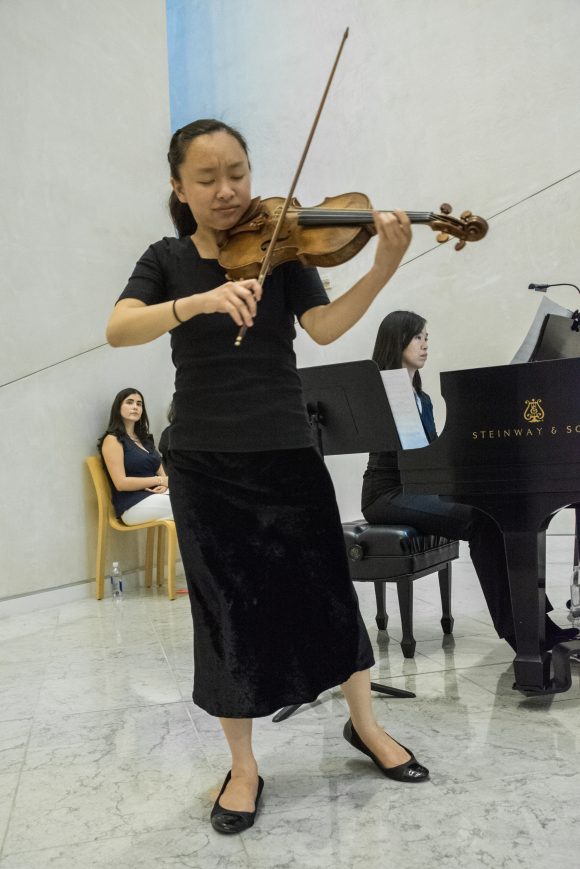
In collaboration with Clara Cheng, Ph.D., lecturer in collaborative arts at Chapman’s Hall-Musco Conservatory of Music, Danielle Liu ’22 performed a lyrical and moving violin solo of the “Theme from ‘Schindler’s List’” as the commemorative candles were lit.
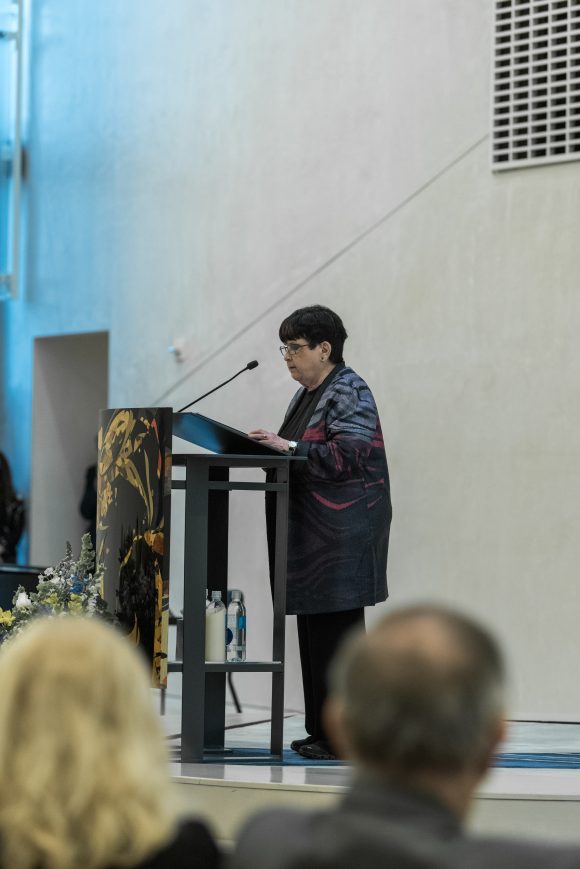
Marilyn Harran, Ph.D., professor of history and religious studies, holder of the Stern Chair in Holocaust Education and the founding director of the Rodgers Center for Holocaust Education, introduced the evening’s speaker with pleas for peace and remembrance. She quoted Elie Wiesel, the late Nobel Peace laureate and Chapman Distinguished Presidential Fellow: “Neutrality helps the oppressor, never the victim,” and encouraged those present to remember the lessons of the Holocaust and consider those in Ukraine in desperate need of support.
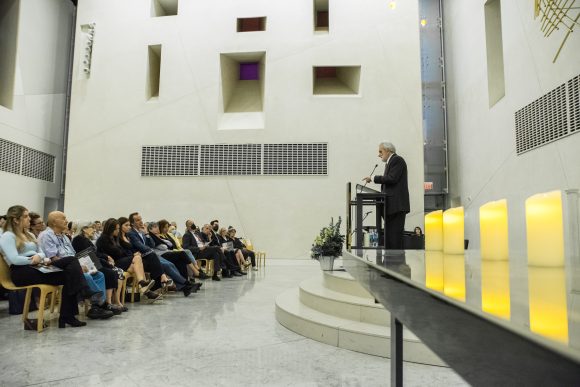
David Crowe, Presidential Fellow at Chapman and author of “Oskar Schindler: The Untold Account of His Life, Wartime Activities, and the True Story Behind ‘The List,’” described his scholarly process and revelations made while researching his forthcoming book, “Raphael Lemkin: The Life of a Visionary.” Lemkin was the Polish lawyer best known for coining the term “genocide” and initiating the Genocide Convention, an international treaty that criminalizes genocide and obligates governments to enforce its prohibition.
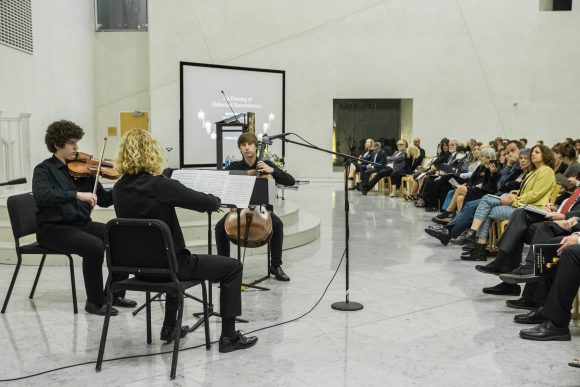
Students from the Temianka String Quartet in the Hall-Musco Conservatory of Music performed the second movement of “Variation on a Moravian Folk Song,” composed by Gideon Klein in 1944. The evocative presentation was performed by David Anderson ’23 (violin), Eleas Vrahnos ’24 (viola) and Sebastian Brumm ’22 (cello).
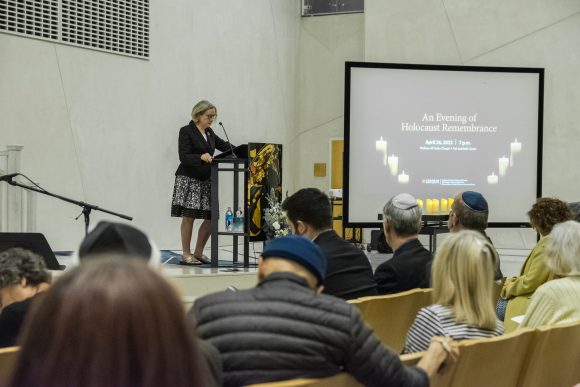
The Irvin C. and Edy Chapman Dean of the Wallace All Faiths Chapel and Associate Professor of Religious Studies Gail Sterns, Ph.D., powerfully reminded those in attendance that “what we have to fear is not any one government or religion, but the exertion of power … authoritarianism in its many forms.” She pointed to the disturbing events taking place in Ukraine today: thousands of cilvilians killed, Jews forced to register in order to be easily identified, fleeing Black Ukranians being turned away from the borders; and Holocaust survivors who made it out alive during World War II who have now perished in Ukraine as a result of Russia’s invasion. Echoing Harran’s sentiments, she admonished that “being an onlooker is not an option.”
Watch the video to experience the music and memories of the Evening of Holocaust Remembrance.
